BMW iX1 vs VW T-Cross – Differences & prices compared
Compare performance, boot space, consumption and price in one view.
Find out now: which car is the better choice for you – BMW iX1 or VW T-Cross?
The BMW iX1 (SUV) comes with a Electric engine and Automatic transmission. In comparison, the VW T-Cross (SUV) features a Petrol engine with Manuel or Automatic transmission.
When it comes to boot capacity, the BMW iX1 offers 490 L, while the VW T-Cross provides 455 L – depending on how much space you need. If you’re looking for more power, decide whether the 313 HP of the BMW iX1 or the 150 HP of the VW T-Cross suits your needs better.
In terms of consumption, the values are 15.80 kWh per 100 km for the BMW iX1, and 5.40 L for the VW T-Cross.
Price-wise, the BMW iX1 starts at 41800 £, while the VW T-Cross is available from 21100 £. Compare all the details and find out which model fits your lifestyle best!
BMW iX1
The BMW iX1 stands out as a versatile addition to the electric vehicle market, seamlessly combining compact dimensions with advanced electric technology. Its sophisticated design elements and premium interiors ensure a luxurious driving experience, while the vehicle's performance focuses on delivering both efficiency and agility. With enhanced connectivity features and an emphasis on sustainability, this model represents a significant step forward in BMW's commitment to a greener future.
details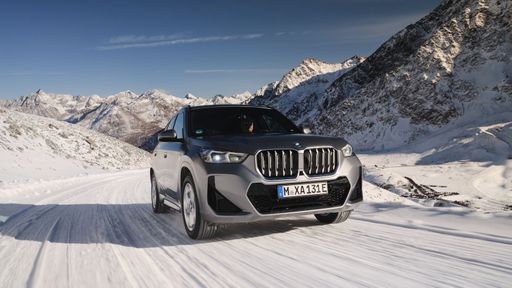 @ press.bmwgroup.com
@ press.bmwgroup.com
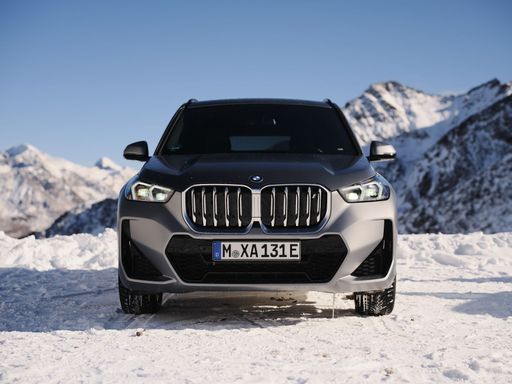 @ press.bmwgroup.com
@ press.bmwgroup.com
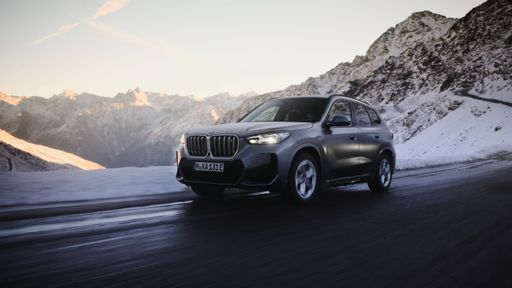 @ press.bmwgroup.com
@ press.bmwgroup.com
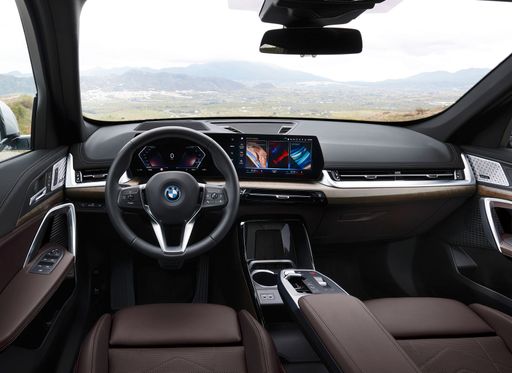 @ press.bmwgroup.com
@ press.bmwgroup.com
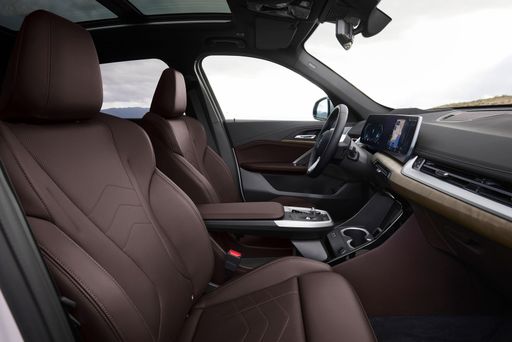 @ press.bmwgroup.com
@ press.bmwgroup.com
VW T-Cross
The VW T-Cross stands out as a versatile compact SUV that combines practicality with style. Its interior design offers a spacious and flexible layout, ideal for both city driving and weekend adventures. With its modern infotainment system, the T-Cross ensures drivers and passengers stay connected throughout their journeys.
details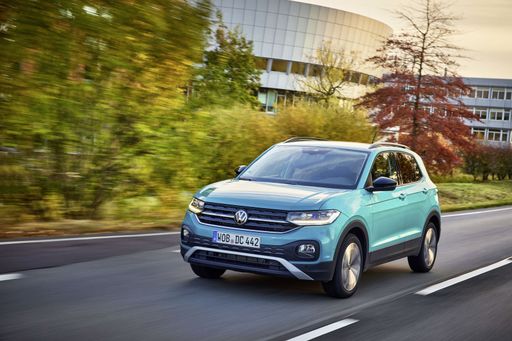 @ Volkswagen
@ Volkswagen
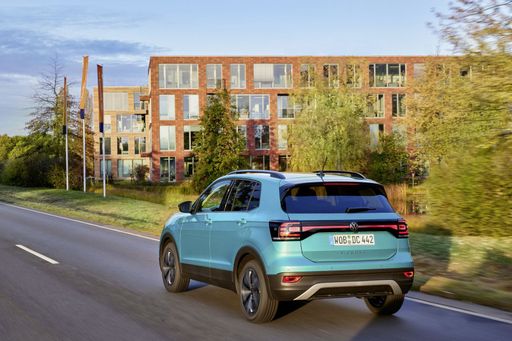 @ Volkswagen
@ Volkswagen
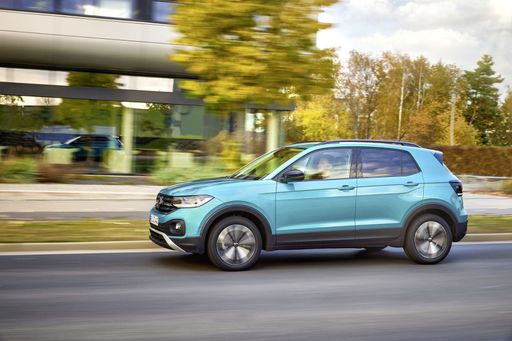 @ Volkswagen
@ Volkswagen
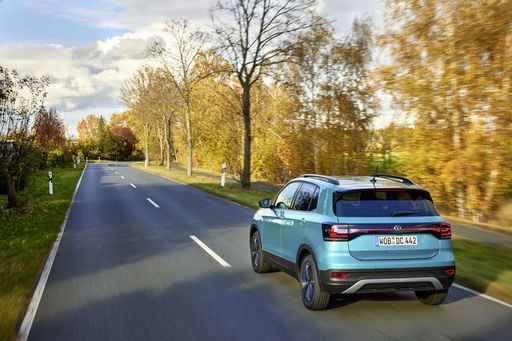 @ Volkswagen
@ Volkswagen
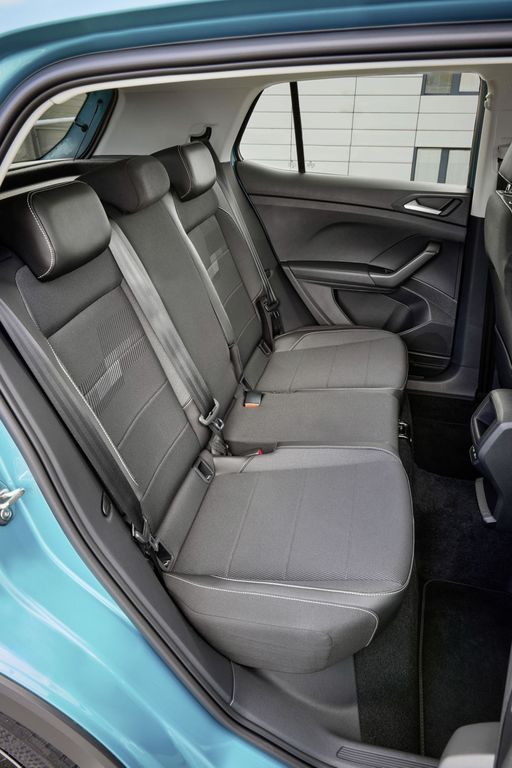 @ Volkswagen
@ Volkswagen
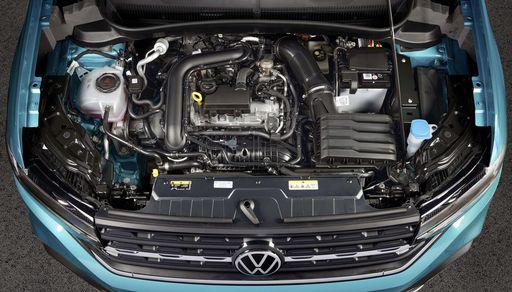 @ Volkswagen
@ Volkswagen

|

|
|
|
|
Costs and Consumption |
|
|---|---|
|
Price
41800 - 54600 £
|
Price
21100 - 31500 £
|
|
Consumption L/100km
-
|
Consumption L/100km
5.4 - 6 L
|
|
Consumption kWh/100km
15.8 - 17.1 kWh
|
Consumption kWh/100km
-
|
|
Electric Range
436 - 463 km
|
Electric Range
-
|
|
Battery Capacity
64.80 kWh
|
Battery Capacity
-
|
|
co2
0 g/km
|
co2
124 - 136 g/km
|
|
Fuel tank capacity
-
|
Fuel tank capacity
40 L
|
Dimensions and Body |
|
|---|---|
|
Body Type
SUV
|
Body Type
SUV
|
|
Seats
5
|
Seats
5
|
|
Doors
5
|
Doors
5
|
|
Curb weight
1940 - 2085 kg
|
Curb weight
1267 - 1338 kg
|
|
Trunk capacity
490 L
|
Trunk capacity
455 L
|
|
Length
4500 mm
|
Length
4127 mm
|
|
Width
1845 mm
|
Width
1784 mm
|
|
Height
1616 mm
|
Height
1573 mm
|
|
Payload
495 kg
|
Payload
463 - 480 kg
|
Engine and Performance |
|
|---|---|
|
Engine Type
Electric
|
Engine Type
Petrol
|
|
Transmission
Automatic
|
Transmission
Manuel, Automatic
|
|
Transmission Detail
Reduction Gearbox
|
Transmission Detail
Manual Gearbox, Dual-Clutch Automatic
|
|
Drive Type
Front-Wheel Drive, All-Wheel Drive
|
Drive Type
Front-Wheel Drive
|
|
Power HP
204 - 313 HP
|
Power HP
95 - 150 HP
|
|
Acceleration 0-100km/h
5.6 - 8.6 s
|
Acceleration 0-100km/h
8.4 - 11.3 s
|
|
Max Speed
170 - 180 km/h
|
Max Speed
180 - 200 km/h
|
|
Torque
250 - 494 Nm
|
Torque
175 - 250 Nm
|
|
Number of Cylinders
-
|
Number of Cylinders
3 - 4
|
|
Power kW
150 - 230 kW
|
Power kW
70 - 110 kW
|
|
Engine capacity
-
|
Engine capacity
999 - 1498 cm3
|
General |
|
|---|---|
|
Model Year
2022 - 2023
|
Model Year
2024 - 2025
|
|
CO2 Efficiency Class
A
|
CO2 Efficiency Class
D, E
|
|
Brand
BMW
|
Brand
VW
|
BMW iX1
A New Era of Innovation: Meet the BMW iX1
The automotive world has seen a seismic shift towards sustainability and electrification, and BMW has solidified its place in this evolution with the introduction of the BMW iX1. As a fully electric SUV, the iX1 serves as a testament to how luxury, performance, and eco-consciousness can harmoniously blend in the modern automotive landscape.
Exquisite Design Meets Purposeful Engineering
The BMW iX1 is not just an electric vehicle; it's an embodiment of cutting-edge design and technology. With its bold SUV silhouette, the iX1 boasts dimensions of 4500 mm in length, 1845 mm in width, and 1616 mm in height, providing a spacious yet agile presence on the road. Its dynamic aesthetic is complemented by an aerodynamic form that enhances efficiency, offering a drag coefficient that rivals traditional SUV models.
Powertrain and Performance Specifications
Beneath the hood of the BMW iX1 lays an electric motor that signifies the future of automotive engineering. Available variants offer power outputs ranging from 204 to 313 PS (150 to 230 kW). The iX1 comes with either a front-wheel or all-wheel drivetrain, catering to different driving preferences. The xDrive30 variant, in particular, features all-wheel drive, delivering up to 313 PS for those who crave enhanced traction and control.
With a commendable electric consumption of 15.8 to 17.1 kWh per 100 km, the iX1 strikes a fine balance between power and efficiency. Its acceleration stats are equally impressive, with the ability to go from 0-100 km/h in as little as 5.6 seconds. This ensures that while it's eco-friendly, it does not compromise on the exhilaration factor. The vehicle can reach a top speed range between 170 and 180 km/h.
A Journey Without Interruptions: Range and Battery Life
The iX1's battery, boasting a capacity of 64.8 kWh, provides a substantial driving range of 436 to 463 km on a single charge, depending on the variant. This means long road trips are not only feasible but enjoyable, eliminating the range anxiety often associated with electric vehicles.
Comfort and Technological Interior
Inside, the iX1 exemplifies BMW’s commitment to luxury and innovation. It’s a five-seater SUV designed with comfort at its forefront, featuring advanced technological interfaces that enrich the driving experience. The spacious cabin offers 490 litres of boot space, ensuring practicality without sacrificing style.
In terms of monthly costs, owning an iX1 can range between €1,147 and €1,453, considering the zero-emission appeal with a CO2 efficiency class of A.
The Financial Aspect of Sustainability
With a price range from €48,400 to €63,140, the BMW iX1 isn't just a vehicle—it's an investment in sustainable motoring. Factoring in a cost of around 45.9 to 58.1 cents per kilometre, the iX1 offers an economically viable option for the eco-conscious driver.
Conclusion: The Future Is Now
The BMW iX1 stands as a beacon of what the future holds for zero-emission vehicles. With a melding of sustainability, performance, and luxury, it's not just a car, but a glimpse into the next chapter of automotive history.
VW T-Cross
The VW T-Cross: A Compact SUV with a Punch
Volkswagen’s T-Cross is stamped as one of the most dynamic models in its segment, combining compact dimensions with versatile features. Designed to bring the SUV experience to an everyday environment, the T-Cross ensures both urban convenience and a robust driving performance. Let's delve deeper into its technical specifications and innovative offerings.
Efficient Powertrains and Performance
Under the hood, the VW T-Cross harnesses efficient powertrains including several petrol engine options, ranging from a modest 95 PS to a more dynamic 150 PS. The model's engine configurations offer either manual or automatic transmission options, coupled with a front-wheel-drive system. These specifications aim to strike a balance between spirited driving and fuel efficiency.
The T-Cross comes with a turbocharged 1.0-litre or 1.5-litre TSI engine, equipped with cylinder deactivation (ACT) technology, enhancing fuel economy and reducing emissions. The engines produce a torque range from 175 to 250 Nm, making everyday driving smooth and responsive.
Fuel Efficiency and Environmental Considerations
The VW T-Cross stands out for its commendable fuel consumption figures, running between 5.6 to 6 litres per 100 km. This classifies it within a respectable CO2 efficiency class D, making it an appealing choice for drivers conscious of both their budgets and environmental footprint. The CO2 emissions range from 127 to 135 g/km, reflecting Volkswagen’s commitment to sustainability.
Design and Utility
Sporting a compact design, the T-Cross measures 4127 mm in length, 1784 mm in width, and 1573 mm in height, offering easy manoeuvrability coupled with an elevated driving position. The SUV hosts a 455-litre boot space, providing ample room for personal belongings or shopping expeditions. Priding itself on practical utility, it can comfortably seat five passengers and supports a maximum load capacity of up to 480 kg.
Comfort and Technology
The T-Cross comes available in various trim levels, such as the GOAL, Life, R-Line, and Style, each offering distinct features tailored to customer preferences. Connectivity and infotainment systems are given priority with the availability of a touchscreen display, ensuring convenience through seamless smartphone integration, navigation systems, and a suite of driver assistance features.
A Conclusion on the VW T-Cross
The VW T-Cross is an embodiment of modern ingenuity within the compact SUV market. It harmonises performance with practicality and presents a modernistic approach to urban driving. Whether you seek efficiency, cutting-edge technology, or ample space to accommodate daily activities, the T-Cross makes a compelling proposition. With a pricing bracket spanning from €24,355 to €36,530, the T-Cross caters to a broad array of budgets while promising a touch of Volkswagen's famed quality and innovation.
Which drive types are available for the BMW iX1?
Available as Front-Wheel Drive or All-Wheel Drive.
The prices and data displayed are estimates based on German list prices and may vary by country. This information is not legally binding.
